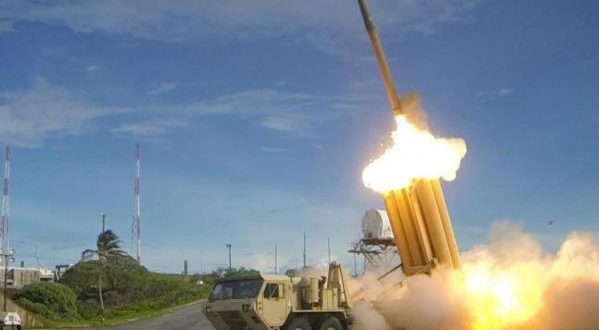China warned on Tuesday it will adopt necessary measures to protect its interests against the deployment of the THAAD, the anti-ballistic missile system from the United States, in South Korea.
The Chinese public have begun to boycott South Korea’s Lotte Group after the company signed a land swap deal with the South Korean government for the deployment of Terminal High Altitude Area Defense (THAAD). Economic boycotts are always an effective means to protest matters of national security, but are a double-edged sword for the local economy. Amid escalating tensions, China should stay vigilant of the possible withdrawal of South Korean firms from the country over fears of being affected by the current relations.
A recent online report said a bogus foreign company received strong support from local authorities in Handan, a city in North China’s Hebei Province, by disguising as South Korea’s Hyundai Group, an illustration of how eager local Chinese governments are to attract investment from South Korean giants.
Amid calls for boycotting South Korean goods, it’s likely it will be more difficult for local governments to attract investment from South Korea. What’s more, some South Korean firms who are already planning to withdraw from China will likely speed up their pace. China will never be afraid of an economic war if it has to break out. However, the country needs to estimate the potential losses and prepare for a worst-case scenario.
Previous mass exoduses of South Korean firms from China attracted attention in 2001 and 2008. As labor costs climb in China, the proportion South Korea’s total outbound direct investment in China has registered a sharp decline.
In contrast, over the last few years South Korea has st/eadily increased its investment towards the Association of Southeast Asian Nations, in which Vietnam, an emerging manufacturing nation, has recorded the highest increase in investment.
It’s highly possible economic ties between China and South Korea will be affected amid a souring political atmosphere. The memory of the territorial dispute between China and Japan in 2012 over the Diaoyu Islands is still fresh for some Chinese people, when direct investment from Japan into China declined. North China’s Tianjin Municipality and East China’s Jiangsu and Shandong provinces remain major destinations for South Korean investment, and local authorities need to take necessary measures to ensure economic stability and job security if investments do decline.
China and South Korea need to take a long view and prepare for ups and downs in bilateral relations. Rising tensions between China and South Korea are unlikely to ease in the short term, as the THAAD deployment is a complicated issue involving the US Asia-Pacific strategy. The game between China and South Korea in deploying THAAD is more of a reflection of the US’ strategy with China.
Agencies/Canadajournal
 Canada Journal – News of the World Articles and videos to bring you the biggest Canadian news stories from across the country every day
Canada Journal – News of the World Articles and videos to bring you the biggest Canadian news stories from across the country every day



